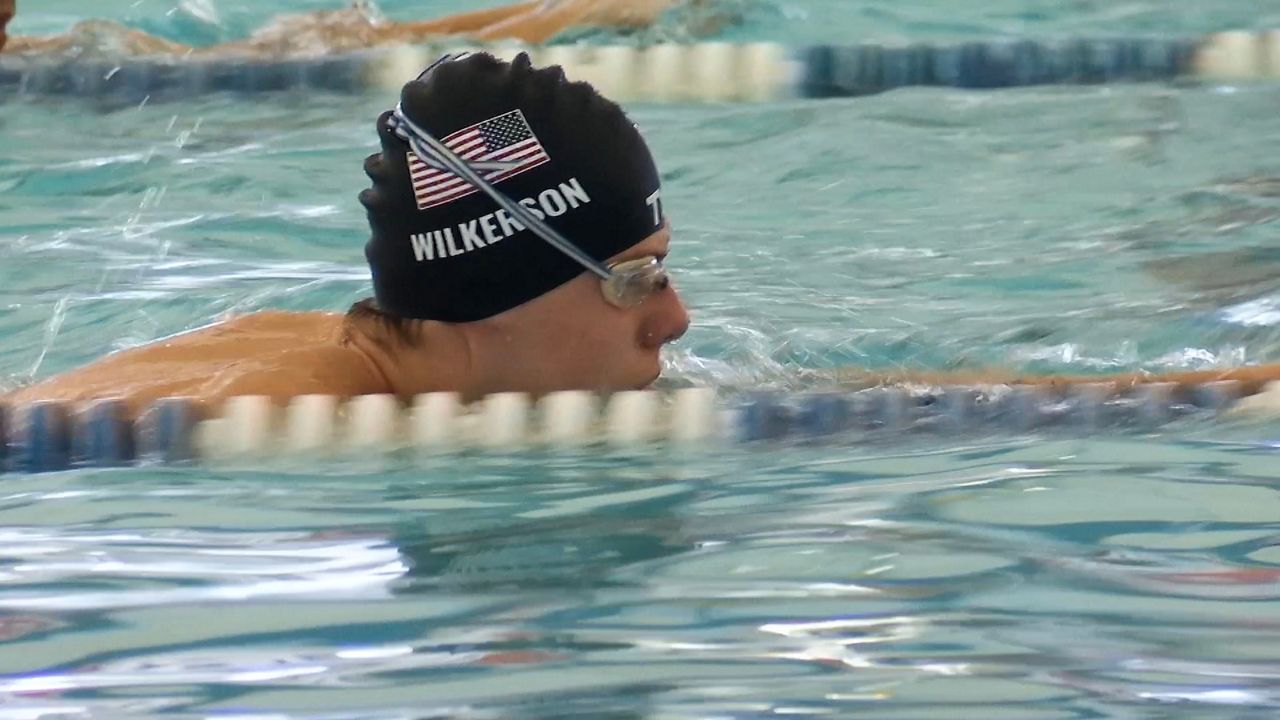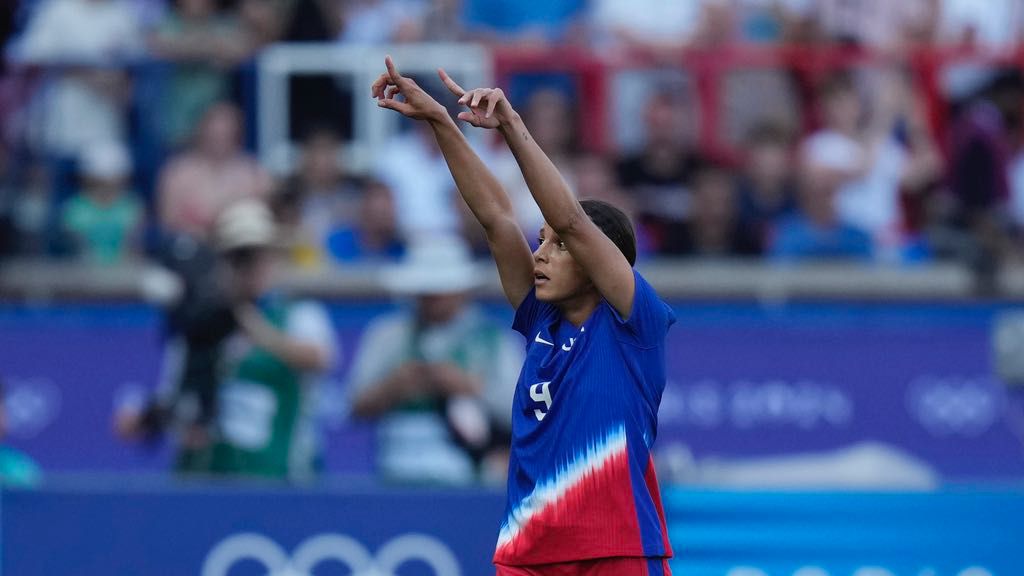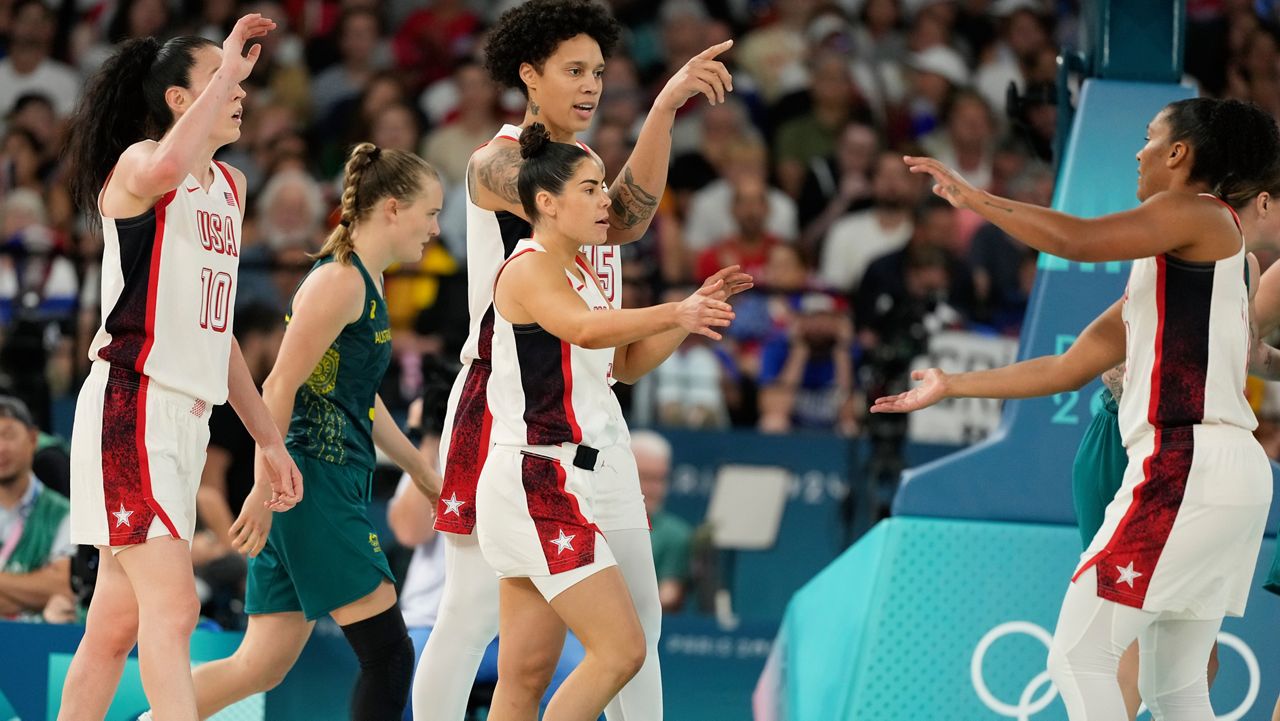FORSYTH COUNTY, N.C. — The Tokyo Olympics are underway, but swimmers competing for the gold won’t be allowed to wear Soul Caps, a brand of swim cap designed for people with a lot of hair.
Soul Cap is a type of swim cap designed to accommodate voluminous hair
The swim cap was banned from the Olympics, which sparked some backlash
Earlier this week, the organization that banned Soul Caps apologized to the company
One lifelong swimmer believes access to swimming is not dependent on swim caps
The International Swimming Federation (FINA) said the caps don’t, “follow the natural form of the head.” Therefore, they can’t be used in the Olympics. It’s a decision that’s received quite a bit of backlash.
The Black Swimming Association tweeted its response to the ruling: “A week after celebrating @alicedearingx becoming the first Black-Brit to qualify for the Olympics we are extremely disappointed to see the @fina1908 decision — one that will discourage many younger athletes from ethnic minority communities from pursuing competitive swimming.”
Author Malorie Blackman reacted to the decision on Twitter: “Part of the reason I hated swimming as a child/teen was because I couldn't fit all my hair into the 'standard' cap. The cap made me feel like I had my head in a vice and resulted in an inevitable after-swim blinding headache. #representationmatters.”
Meanwhile, Renee Hicks Walker lives in Forsyth County and has been swimming all her life.
“Once you learn it, you never forget it. You may not always be good,” Hicks Walker said.
She’s no longer a competitive swimmer, but every weekend she packs her swim bag, puts her hair back and heads to the pool.
“It makes your swimming cap go on easier and plus it helps when you’re swimming because everything is supposed to be aerodynamic,” Hicks Walker said.
She believes swim caps aren’t the most important factor when it comes to diversity in the water.
“Typically in the African American community, we did not have an opportunity to swim. If you look at where a lot of the neighborhoods are, there’s not always a pool,” Hicks Walker said.
These days, she helps teach other Black women to swim and says swim caps aren’t necessarily a barrier to that process.
As you can see, these are the caps that we had when I was a little girl. So this is all I’ve ever used“For me, it’s not an issue because I’ve never known anything but the same caps. As you can see, these are the caps that we had when I was a little girl. So this is all I’ve ever used,” Hicks Walker said.
Soul Cap is just one brand that’s designed with all kinds of hair in mind, but the fundamentals are the same regardless of the cap on a swimmer’s head.
“I just think everybody can swim. Swimming doesn’t have a color. It’s for everybody, and it’s just all about access,” Hicks Walker said.

It's important to point out that FINA’s ruling on Soul Cap is just for the Olympics. Hicks Walker says she's indifferent to the decision because all sports have rules about what you can or can't do, including the equipment you're allowed to use.
Earlier this week, the owners of Soul Cap said FINA apologized to them then pledged to review its application process and offered their full support through the next submission window.









